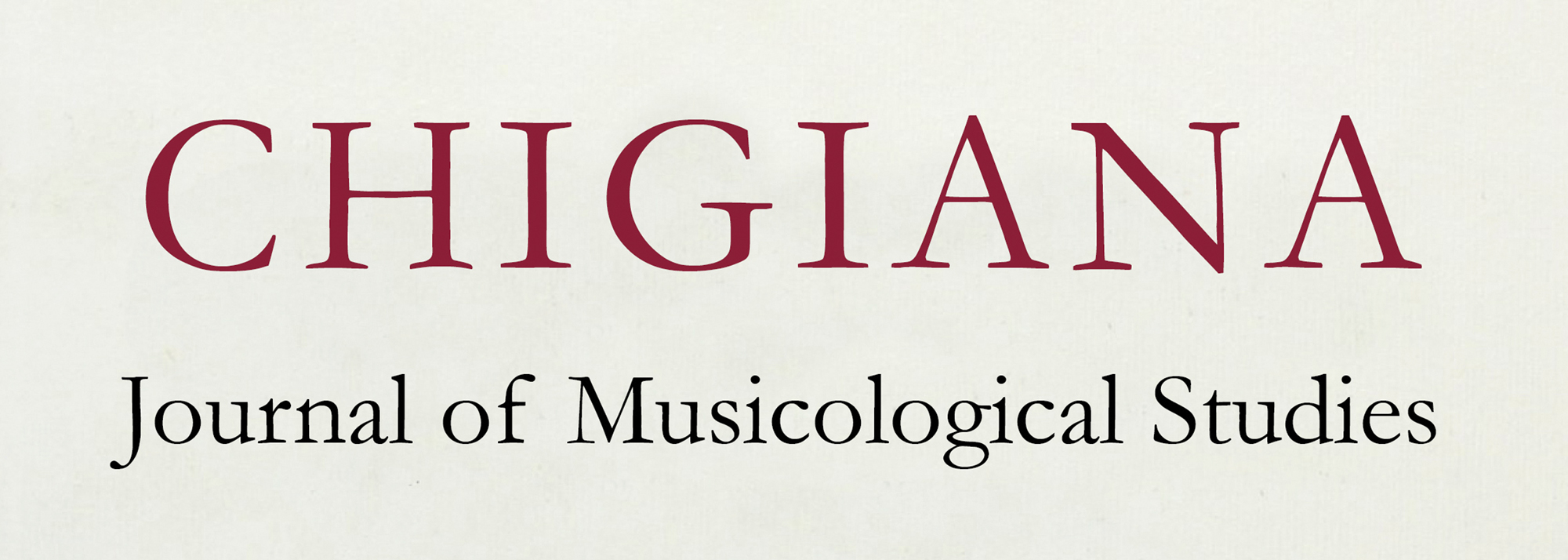
CODE OF ETHICS
The following Code of Ethics is explicitly based on the Core Practices elaborated by COPE (Committee on Publication Ethics).
Chigiana is a peer-reviewed journal that avails itself of double-blind reviews in selecting and publishing academic articles. All parties involved in the publication – Authors, Reviewers, Editors, Editorial Assistants, and members of the Scientific Board – are aware of the ethical standards required and expressly adopt them.
Duties of the Journal’s Editor and other members
- Chigiana decides to accept or decline an article for publication on the basis of an evaluation of its academic quality and originality.
- The Editor-in-Chief is responsible for the procedure of evaluating and revising the texts, relying on the support of the Associate Editors, the Scientific Board, and the opinion of highly qualified Peer Reviewers.
- Articles are evaluated through a double-blind peer review procedure. Each article is evaluated by two Reviewers selected on the basis of their competence and high qualification in the field; their motivated opinion is communicated in its entirety, in writing, to the authors. The journal is committed to ensuring an anonymous, fair and impartial peer review. In the event of conflict between the evaluations of the two Reviewers, the Editor may turn to the opinion of a third Reviewer.
- The journal guarantees the privacy of the texts proposed for publication throughout the evaluation procedure. The confidentiality of individual, scholarly or professional information is guaranteed for the entire review process.
- The journal also applies the same anonymous and objective evaluation procedures to the articles submitted for publication by members of the Editorial team.
- The results for each article’s peer review process are archived in a confidential database.
- The journal abides by the provisions of the law concerning libel, copyright infringement and plagiarism, and is obliged to act as required by copyright legislation in the case of the author misconduct or other types of infringement.
Duties of the Reviewers
- Articles are submitted for examination to two Reviewers: their motivated opinion is fully communicated, in writing, to the authors.
- The texts are sent to the Reviewers in a strictly anonymous form; similarly, the Reviewers’ evaluations are also forwarded to the author in a strictly anonymous form.
- The Reviewers are invited to assess the articles by filling in a form provided by the journal; in particular, the Reviewers are asked to express a detailed opinion on the basis of certain specific indicators, and to suggest to the author possible corrections and adaptations intended to maximize the article’s potential.
- The Reviewers are required to treat the material with full confidentiality, and not to use information obtained through the revision of the manuscripts for their personal gain.
- The Reviewers are required to inform the Editor of any potential conflicts of interest of which they are aware, both before accepting the task and during the review.
- The Reviewers are invited to inform the Editor if they detect violations of intellectual property laws or infringements of any other kind.
Duties of the Authors
- Authors are personally responsible for the content of the articles, and must guarantee the authorship and originality of the texts. Authors must always refer to their sources explicitly, accurately citing them.
- The texts proposed by the Authors must not have been previously published as copyrighted material in any other periodicals; while being reviewed, the authors agree not to submit the text to other periodicals for publication.
- When texts written by several authors are presented, the reference Author must ensure that all co-authors have seen and approved the final version of the text, and have agreed on submitting it for publication.
- Authors are advised to follow the editorial guidelines and guarantee the accuracy, completeness and clarity of the articles, in line with the journal scholarly and editorial standards.
The editorial policies and code of ethics are periodically updated according to the guidelines of the COPE Consortium.
